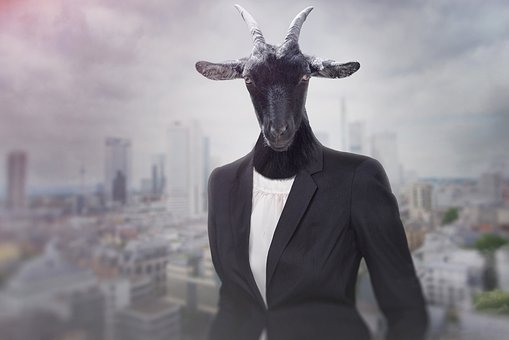A serious yet little known illness, known as “bipolar disorder”, has enormous consequences not only for those who suffer from it but also for their families, their friends and their businesses.
Everybody likes Luke… or almost everybody. In the last ten years, the number of animals on his farm has tripled and buildings have been sprouting up like mushrooms. Luke is a member of several agricultural committees and is politically active. He barely sleeps a few hours a night and is a real dynamo. He is known as being a formidable businessman. When he gets an idea in his head, nobody can slow him down.
Yet at home, as opposed to on the farm, reality is entirely different. He wife is close to leaving him, his kids don’t talk to him and the turnover in personnel is enormous. Luke the “entrepreneur” suffers from mood swings: he is bipolar (manic-depressive).
Bipolarity affects about 3 % of the population to some extent. People who suffer from it experience manic or very high periods in their lives. During these highs they have tons of ideas, energy, confidence and ambition. They over estimate their capacities and under estimate difficulties, oscillating between exhilaration and irritability. They are both convinced and convincing so that their projects are difficult to counter. What is worse, they react aggressively to debate. Their well-developed craving for risk can lead them to spend excessively and act dangerously. This can lead to unfortunate consequences like drinking, driving dangerously or embarking on extramarital affairs.
At some point in time, the cycle of depression and the symptoms that accompany it will appear, such as loss of self-esteem, lack of interest and energy, despair, suicidal tendencies, etc. These cycles, which may last for varying periods of time, are punctuated with periods of stability, but the illness gets worse; the symptoms are more intense and the cycles are more rapid.
The last ten years have been disastrous for people who suffer from a serious mood disorder. With the increased appreciation for expansion, the American ideology of the “bigger the better” and the loosening of financial restraints, a bipolar is like an alcoholic faced with an “open bar”. When they are on a high, there are no limits, except for those which are imposed by their mates, their associates, the banks, etc. And even then….
Victims of this syndrome are often looked up to because the difference between an entrepreneur and a bipolar is very subtle. On a small scale, some of these traits are similar except that in the case of a bipolar, they become excessive and lead to financial disaster and ruined relationships. It is estimated that fewer than 10% of cases are diagnosed and by the time they are, it is often too late – the patient and his family have already gone through hell.
Bipolar disorder is treated with medication and psychotherapy. If it is not diagnosed, this disorder can have enormous consequences for the people affected, their families and their businesses. Finally, victims of this disease also have the highest suicide rates – between 15 and 20%. When my mother used to say: “ambition can kill you”, is it possible that was what she was referring to?
Pierrette Desrosiers,
Work Psychologist, professionnal speaker, author and business coach


